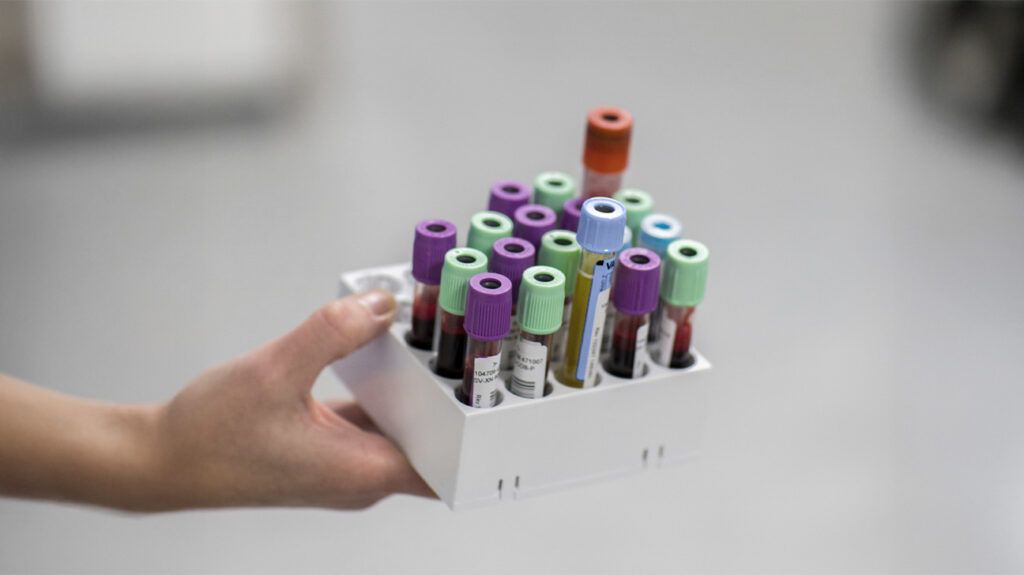FDA Approves First Blood Test for Alzheimer’s Disease: Key Insights

The FDA has approved the first blood test for Alzheimer’s disease, offering a less invasive, accessible, and early diagnostic option that could revolutionize patient care and research.
FDA Approves First Blood Test for Alzheimer’s Disease: What You Need to Know

The U.S. Food and Drug Administration (FDA) has given regulatory approval for the first blood test that helps diagnose Alzheimer’s disease, marking a significant advancement in early detection.
Key Highlights
- Early diagnosis is crucial for better management and treatment outcomes.
- The new blood test measures proteins amyloid-beta and tau in blood, reducing the need for invasive spinal taps.
- This breakthrough could make Alzheimer’s diagnosis more accessible and less uncomfortable.
How Does the Blood Test Work?
The Lumipulse G pTau217/ß-Amyloid 1-42 Plasma Ratio test analyzes the levels of specific proteins associated with Alzheimer’s in blood plasma. Elevated levels of these proteins indicate the presence of amyloid plaques and tau tangles in the brain, hallmarks of Alzheimer’s.
"In Alzheimer’s, troublesome proteins disrupt normal brain function, and this blood test helps identify those culprits early," explains Dr. Manisha Parulekar.
Comparing Tests: CSF vs. Blood
Traditionally, diagnosis involved examining cerebrospinal fluid via lumbar puncture, which is invasive. The new blood test simplifies the process, allowing for quicker and more comfortable screening.
Limitations and Future Outlook
Like any diagnostic tool, the blood test can yield false positives or negatives. Experts emphasize that it should be used alongside other assessments and interpreted by specialists. Its role in primary care and widespread screening requires further research.
The Promise of Early Detection
Many experts are optimistic that this noninvasive, accessible test will facilitate earlier diagnosis, enabling timely interventions and participation in clinical trials. It may also help reduce health disparities by making screening more widely available.
"This is a game-changer in Alzheimer’s detection," says Dr. Gediminas Gliebus. "Lower cost and less invasive, it could transform early diagnosis and treatment approaches."
Conclusion
While additional studies are needed, the FDA’s approval marks a milestone toward more accessible and early detection of Alzheimer’s disease, opening new avenues for research and patient care.
References
- FDA Announcement: FDA Press Release
- Explanation of testing: Medical News Today
Stay Updated with Mia's Feed
Get the latest health & wellness insights delivered straight to your inbox.
Related Articles
Early Brain Development Changes May Reveal Causes of Autism and Schizophrenia
New research unveils how early changes in DNA methylation during brain development may underpin neurodevelopmental conditions such as autism and schizophrenia, highlighting the importance of epigenetic processes in brain formation.
Higher Psychotropic Medication Use in Elderly Residents with Dementia
Research indicates that residents with dementia in aged care are prescribed antipsychotic medications at twice the rate of those without dementia, highlighting ongoing challenges in safe medication management for older adults.
Innovations in Remote Monitoring Technologies for Post-Joint Replacement Care
Recent developments in remote monitoring technologies are transforming post-joint replacement care by enabling real-time, personalized patient assessment and improving recovery outcomes. Researchers highlight innovative sensors and systems that enhance orthopedic recovery monitoring.
New Evolutionary Model Highlights the Importance of Dose Timing in Antibiotic Resistance Management
A groundbreaking study introduces a new evolutionary model showing that the timing of antibiotic doses, especially early doses, is crucial in preventing bacterial resistance. Accurate dosing schedules can improve treatment outcomes and curb the rise of superbugs.



